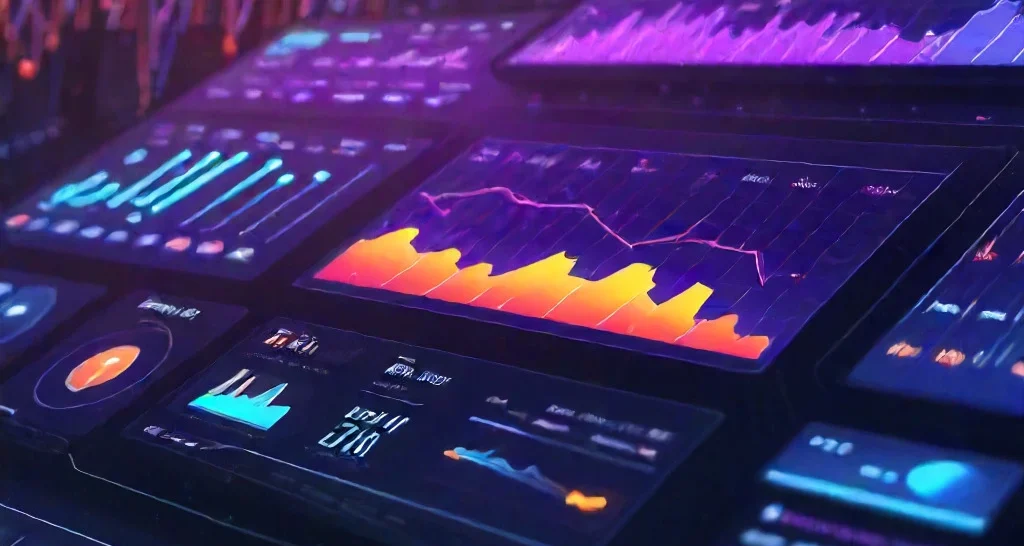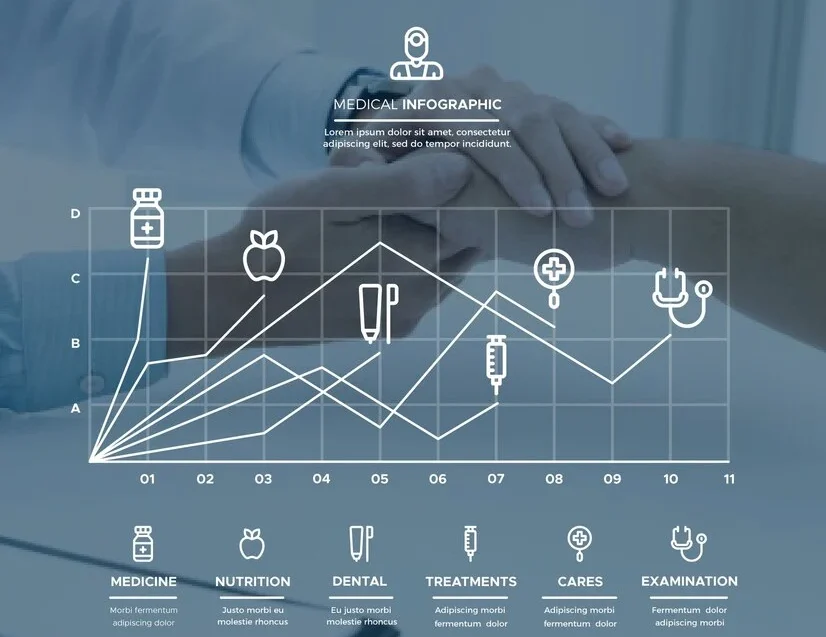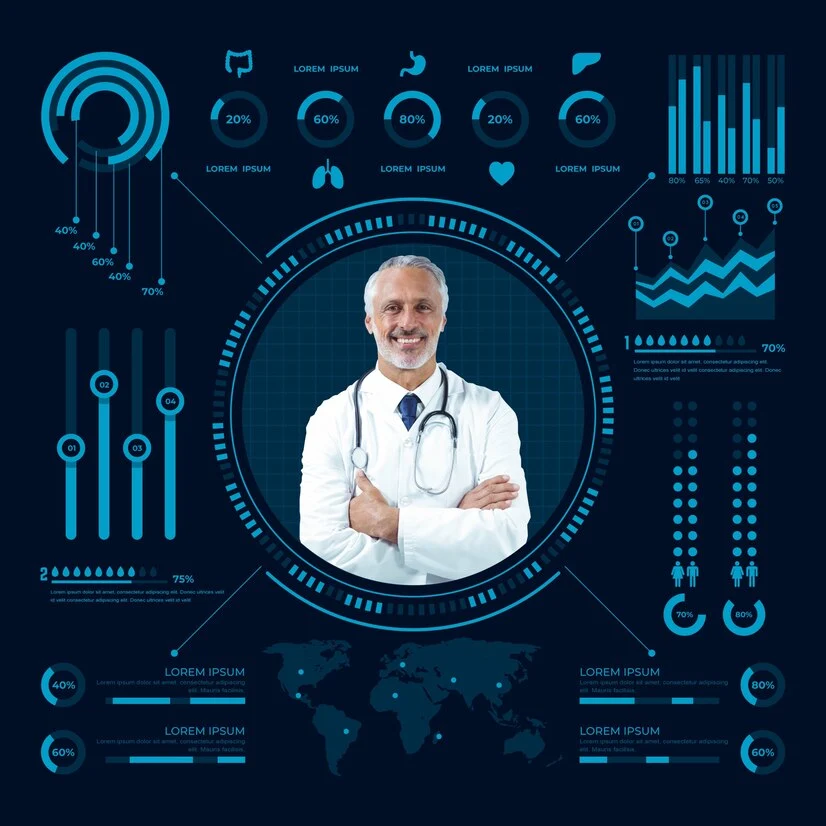
Healthcare analytics is transforming the medical industry by leveraging data to improve patient outcomes, enhance operational efficiency, and reduce costs.
But what exactly is healthcare analytics? At its core, it involves the collection, analysis, and interpretation of vast amounts of health-related data to drive decision-making and strategy in healthcare settings.
With its growing importance, healthcare analytics is becoming a cornerstone in the quest for betterHealthcare Analytics Services and patient care.
Types of Healthcare Data Analytics
Descriptive Analytics
Descriptive analytics focuses on summarizing past data to understand what has happened over a specific period. It includes techniques like data aggregation and data mining to provide insights into trends and patterns within historical data.
Diagnostic Analytics
Diagnostic analytics delves deeper to determine the causes of past outcomes. This type of analytics involves comparing different data sets to identify correlations and root causes of specific events or behaviors.
Predictive Analytics
Predictive analytics uses historical data, statistical algorithms, and machine learning techniques to predict future outcomes. It’s particularly valuable in forecasting disease outbreaks, predicting patient admissions, and managing resources effectively.
Prescriptive Analytics
Prescriptive analytics goes beyond prediction by recommending actions to achieve desired outcomes. It uses complex algorithms and simulation techniques to suggest the best course of action based on predicted data trends.
Healthcare Data Analytics Options
In-house Analytics Solutions
In-house solutions involve developing and maintaining analytics capabilities within the healthcare organization.
This option provides greater control over data and customization but requires significant investment in technology and skilled personnel.
Outsourced Analytics Services
Outsourcing analytics services to specialized providers can be cost-effective and efficient. These providers offer expertise and advanced tools that might be too expensive or complex for individual organizations to develop on their own.
Hybrid Models
A hybrid approach combines in-house and outsourced solutions, allowing healthcare organizations to leverage external expertise while maintaining control over critical data and processes.
Medical Data Analytics Development Scenarios

Healthcare Analytics Services
Scenario 1: Small Clinics
Small clinics can benefit from basic analytics tools that track patient appointments, manage billing, and monitor treatment outcomes. These tools help streamline operations and improve patient care.
Scenario 2: Medium-Sized Hospitals
Medium-sized hospitals might invest in more advanced analytics systems that integrate with electronic health records (EHR) and patient management systems. These solutions can provide comprehensive insights into patient health, resource utilization, and operational efficiency.
Scenario 3: Large Healthcare Networks
Large healthcare networks require sophisticated analytics platforms that can handle vast amounts of data across multiple facilities. These platforms support advanced predictive and prescriptive analytics, enabling large-scale population health management and strategic planning.
Digital Healthcare Analytics Services
Electronic Health Records (EHR) Analysis
EHR analysis involves examining patient records to identify trends, monitor treatment outcomes, and improve care protocols. EHR data is a rich source of information for both clinical and operational decision-making.
Patient Management Systems
Analytics in patient management systems can enhance patient tracking, appointment scheduling, and treatment planning. These systems help healthcare providers deliver more personalized and efficient care.
Telemedicine Data Analysis
With the rise of telemedicine, analyzing data from virtual consultations can provide insights into patient demographics, common health issues, and the effectiveness of remote care.
Mobile Health (mHealth) Analytics

Healthcare Analytics Services
mHealth analytics involves analyzing data from health apps and wearable devices. This data can offer valuable information about patient behaviors, activity levels, and health trends outside traditional clinical settings.
Top 10 Healthcare Data Analytics Use Cases
- Improving Patient Outcomes
- Utilizing data to tailor treatments and monitor patient progress.
- Reducing Operational Costs
- Identifying inefficiencies and optimizing resource allocation.
- Enhancing Treatment Protocols
- Analyzing clinical data to refine and improve treatment guidelines.
- Population Health Management
- Managing and improving the health of a specific population through targeted interventions.
- Fraud Detection
- Using analytics to detect and prevent fraudulent activities within the healthcare system.
- Risk Management
- Assessing and mitigating risks related to patient care and operational processes.
- Personalized Medicine
- Leveraging genetic and clinical data to customize treatments for individual patients.
- Hospital Readmissions Reduction
- Predicting and preventing unnecessary readmissions through targeted interventions.
- Supply Chain Optimization
- Ensuring the efficient procurement and distribution of medical supplies.
- Resource Allocation
- Optimizing the allocation of staff, equipment, and facilities based on demand patterns.
Benefits of Healthcare Data Analytics
Improved Patient Care
Analytics helps healthcare providers deliver more accurate diagnoses, effective treatments, and better patient monitoring, leading to improved patient outcomes.
Cost Efficiency
By identifying inefficiencies and optimizing processes, healthcare analytics can significantly reduce operational costs.
Enhanced Operational Efficiency
Data-driven insights enable healthcare organizations to streamline operations, from scheduling and staffing to supply chain management.
Better Decision Making
Analytics provides healthcare leaders with actionable insights, supporting informed decision-making and strategic planning.
Advanced Research Capabilities
Access to large datasets and sophisticated analytics tools facilitates cutting-edge medical research and innovation.
Challenges of Implementing Healthcare Data Analytics
Data Privacy and Security
Ensuring the privacy and security of sensitive patient data is a significant challenge. Compliance with regulations like HIPAA is crucial.
Integration with Existing Systems
Seamlessly integrating new analytics tools with existing systems can be complex and require substantial IT support.
High Costs
The cost of acquiring and maintaining advanced analytics tools and infrastructure can be prohibitive for many healthcare organizations.
Data Quality and Management
Ensuring high-quality, accurate, and consistent data is essential for reliable analytics but can be challenging to maintain.
Lack of Skilled Personnel
There is a growing demand for skilled data scientists and analysts in healthcare, and finding qualified professionals can be difficult.
8 Best Predictive Analytics Tools on the Market

Healthcare Analytics Services
- IBM Watson Health
- Offers a suite of AI-driven analytics tools for various healthcare applications.
- SAS Health
- Provides advanced analytics solutions tailored for healthcare organizations.
- Microsoft Azure Health
- Features comprehensive cloud-based analytics services for health data.
- Oracle Health Sciences
- Delivers robust analytics platforms for clinical trials and health data management.
- Health Catalyst
- Specializes in healthcare data warehousing and analytics.
- Tableau
- Renowned for its powerful data visualization and analytics capabilities.
- Qlik
- Offers intuitive and scalable analytics solutions for healthcare providers.
- RapidMiner
- Provides an integrated platform for data science and machine learning in healthcare.
Conclusion
Healthcare analytics is revolutionizing the medical field by harnessing the power of data to drive better patient outcomes, operational efficiency, and cost savings. While there are challenges to implementing these solutions, the benefits far outweigh the drawbacks. As technology advances, the future of healthcare analytics looks promising, offering even more innovative ways to enhance health services and patient care.
FAQs
Where does medical data come from?
Medical data is sourced from various places including electronic health records (EHR), patient management systems, wearable devices, and telemedicine platforms. It also comes from clinical trials, lab results, and patient surveys.
What is advanced analytics in healthcare?
Advanced analytics in healthcare refers to the use of sophisticated techniques like machine learning, predictive modeling, and artificial intelligence to analyze complex health data and derive actionable insights.
What algorithms do data analytics platforms employ?
Data analytics platforms use a range of algorithms including regression analysis, clustering, classification, neural networks, and natural language processing (NLP) to process and analyze health data.
What is the cost of healthcare analytics solutions?
The cost of healthcare analytics solutions varies widely based on the complexity and scale of the system. It can range from a few thousand dollars for basic tools to several million for comprehensive, enterprise-level platforms.